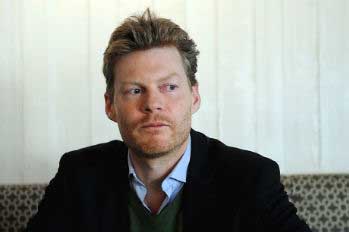Is there an economic alternative to capitalism? Does all economic activity today really serve the common good? Is a sustainable economic model feasible? All these questions that seek to shake the system are the basis of the work done by the economist Christian Felber (Austria, 1972), promoter of the so-called Economy for the Common Good.
This current wants to humanize the economy, setting ethical indicators above the financial ones that currently prevail in the economic model. This way, a company will be profitable if it protects the environment, if the decisionmaking has a democratic character, if it defends the dignity of workers, if it brings value to society, etc.

In short, it is about changing the current economic model to one based on ethical values, where the ultimate goal is the common good and not money.
What are the Economy for the Common Good origins?

We must go back to 2008 to find the origin of this project. Felber, along with other eleven experts in the field, signs the declaration At peace with the Capital? [...], seed of the ideology of the Economy for the Common Good. A year later, Christian Felber co-founds the Austria Movement and in 2010 he launches the project Democratic Bank. That year he starts the practical development of the Economy for the Common Good model, which will try to stand up against the current capitalist system and the planned economy.
Economy for the Common Good Values
Although the expectation of Felber about his economic model is that its principles are set among everyone as time goes by, there are two immovable initial premises:
- The Economy for the Common Good is powered by the same values that run human relationships: trust, honesty, responsibility, cooperation, solidarity, generosity and compassion. A competitive company based on sustainability and ethical values will have better credit conditions, priority in public contracts and increased tax exemption.
- Do not confuse financial benefit with social benefit: the Economy for the Common Good wants to recover the concept of economic success associating it with positive contribution to society. For example, the GDP (Gross Domestic Product) does not reveal us whether a country is friendly to the environment, human rights, etc. Therefore, the proposition is to replace the current financial success indicators, -net benefit, GDP…- by other indicators such as human dignity, solidarity, social justice and sustainability. Based on these values, the consumer may choose their products or services.
Actual implementation of the economic model

For those who refuse to see the Economy for the Common Good as a true replacement for the capitalism and label it as a utopia, we must remember that since the begginning of its promulgation, six years ago now, a group of companies in several countries have voluntarily adopted its principles and today they have become a political movement that seeks to show the governments that the implementation of the system is possible. Among these companies, already more than two hundred, we can find enterprises from different sectors: BIO Austria Salzburg (association for the promotion of organic farming), Smileveda (general welfare, massage and cooking classes), Vegetarisches Hotel Balance (ecolodge) o Architekt Bernhard Oberrauch (sustainable architecture office).
What do you think about the Economy for the Common Good? Share your opinion and participate in our poll.
Sources: Economy for the Common Good, eldiario.es, ECG Film, Público and El Mundo.